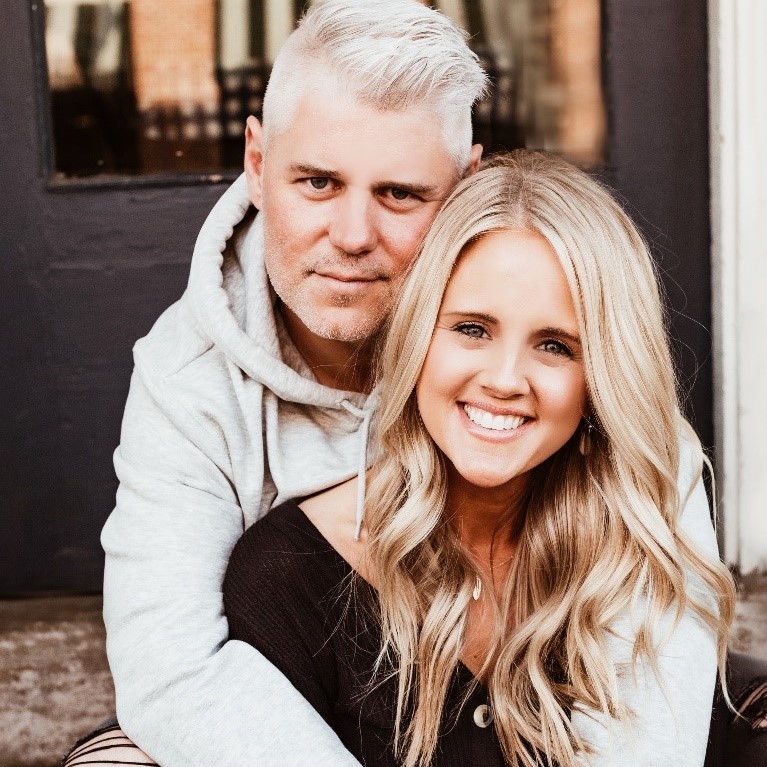What was your first encounter with awe? There are certain experiences in life that leave you awestruck forever. I remember a particular season, years ago, in those wonderfully awkward middle school years, of just beginning to grapple with my faith. For the first time, the summer of my seventh-grade year, my relationship with Jesus became real to me in a new way. I don’t know how else to describe it other than to say I had an encounter with Him. In the middle of a sweaty camp in Columbus, Texas. I felt the undeniable presence of God for the very first time, and I was never the same.
I never got over it. It was my first experience of great awe. That rush of joy, peace, wonder, gratitude, all wrapped up into one emotion. I just remember thinking, I could stay here forever. This encounter of awe with God also changed the sense of awe I was able to have for those He put around me. Somehow, adoring Him enabled me to more easily adore the people He placed in my life. This is the power of awe.
Losing Awe
How do we lose our sense of awe, and how can we guard against that happening? Practicing the rhythm of awe requires us to guard against some common ruts every marriage can fall into.
The Myth of the Ordinary
We cannot let the great gift of marriage become ordinary. When our relationship with our spouse loses its luster, we can forget its incredible value. Hindsight is 20/20. What a great tragedy it would be if it were only after it’s all said and done that we finally wake up to realize what golden days we were living in. When it’s all over, what we wouldn’t give to go back, just for one day, to spend one afternoon with those young, passionate twentysomethings who couldn’t keep their hands off each other.
If you’re in the middle of what feels like an ordinary season in your marriage—if you’re stuck in the ruts—imagine yourself at the end of your life. What are the golden moments you’ll remember fondly from this time? What do you think you’ll miss someday? Remind yourself of the good and beautiful things your spouse brings into the world—the way she always seems to have the insight you need when you’re stuck, the way he brings laughter into serious moments. Thriving couples shut down the myth of ordinary by choosing awe. They choose gratitude, choose to see and be thankful for the good, and continually shift back toward each other. In little and big ways, step-by-step, choice by choice we can begin to grow a deep sense of admiration for our spouse that will carry us through the toughest of times. At the end of the day, “happiness is not having what you want but wanting what you have.”77 Thriving couples dispel the myth of ordinary by choosing awe.
The Problem of Contempt
One of the greatest dangers to a thriving relationship—and a thief of awe—is contempt. In fact, according to research psychologist Dr. John Gottman, contempt is the number-one predictor of divorce in couples. “When contempt begins to overwhelm your relationship you tend to forget entirely your partner’s positive qualities, at least while you’re feeling upset. You can’t remember a single positive quality or act. This immediate decay of admiration is an important reason why contempt ought to be banned from marital interactions.”78
Dr. Gottman found that the most successful couples he observed entered a state of mind called “positive sentiment override,” where they have built such a strong bond with each other— through practicing habits like verbal gratitude, enjoying real connection, and developing admiration of each other—that they can more easily settle conflicts, let go of minor annoyances, and make greater allowances for each other’s faults. The couples who did not cultivate a strong bond with each other fell into a place of “negative sentiment override,” finding it harder not to become frustrated and annoyed by minor problems and noticing that even the smallest issues could set them off.79
If you find yourself in a place of contempt with your spouse, take heart, friend. We are all always one choice away from moving back in the right direction. We can start today. Thriving couples banish contempt by choosing awe. When the emotional connection with each other is strong, we see more easily the positive aspects of our spouse, let go of offenses more quickly, and have a strong relationship to lean on when conflict comes.
The Thief of Comparison and Entitlement
Another great danger of awe is entitlement. Over time in marriage, we can start to believe the great lie that our spouse belongs to us. When we think our spouse is a fixed part of our life, we can begin to take them for granted. We forget that waking up next to them every morning is not, in fact, a given. We lose our curiosity for their life, to know more of who they are, and what God’s doing in them. Awe cannot exist alongside entitlement because entitlement robs us of the ability to be grateful. Entitlement says, There is always more I deserve, and you are never enough.
A close brother to entitlement—and another thief of awe—is comparison. Comparison is a poison that blinds us to the abundant blessings all around us. As Dr. Henry Cloud says, “People who are motivated by envy define the good as that which I don’t have.”80 Envy keeps us constantly looking over our shoulder at what those around us possess, convincing us that somehow it must be so much better than what we have. The grass is always greener on the other side. But the truth is, our yard has the same potential to be just as flourishing as our neighbors, if we choose to water and care for it.
The Wound of Unforgiveness
Sometimes the thief of awe is deep pain and unforgiveness. I want to stop and acknowledge here that some of our stories hold deep wounds. Hateful words have been spoken. Hopes and dreams have died. Needs have been neglected. Pain is real, and it’s important to recognize where we’ve been hurt and share honestly about it with our spouse. Our marriage cannot thrive if we ignore or deny where we’ve been wounded. When the air is calm and emotions aren’t running the show, take some time to be open and honest with your spouse about where you’ve been hurt.
Acknowledging the truth is always the beginning of healing. Remember, true change begins with honesty.
The goal in bringing deep pain and unforgiveness to the surface is not to point our finger at our partner’s faults, even in an effort to help them. The goal is always forgiveness and reconciliation. Forgiveness does not negate the wrong done to us, but it does free us to move forward into a better tomorrow. Forgiveness enables us to see once again through the lens of awe and wonder and opens us up to create the marriage we long for.
Eugene Peterson said, “All suffering, all pain, all emptiness, all disappointment is seed: sow it in God and he will, finally, bring a crop of joy from it.”81 Forgiveness can restore awe by opening our eyes once again to see our spouse as a blessing, rather than clinging to and defining them by the hurts of the past. If we allow Him to, God can teach us His kind of compassion that frees others in our lives to be defined by who they are in Him, rather than their mistakes that may have wounded us.
Mindset Matters
To be clear, we are not calling for a return to viewing life and marriage as a sentimental fairy tale. Far from it. Like anything truly meaningful and valuable in life, a thriving marriage requires a lot of work and sacrifice. But here comes the point: It’s worth it. As the great theologian Jimmy
Dugan said in the famous baseball classic, “The hard is what makes it great.” The hard is not what makes it miserable. The hard—the work, the sacrifice, the pouring out of ourselves for the benefit of another—is what makes it great.



